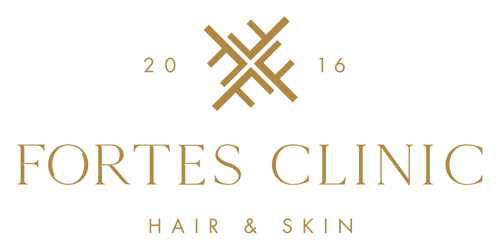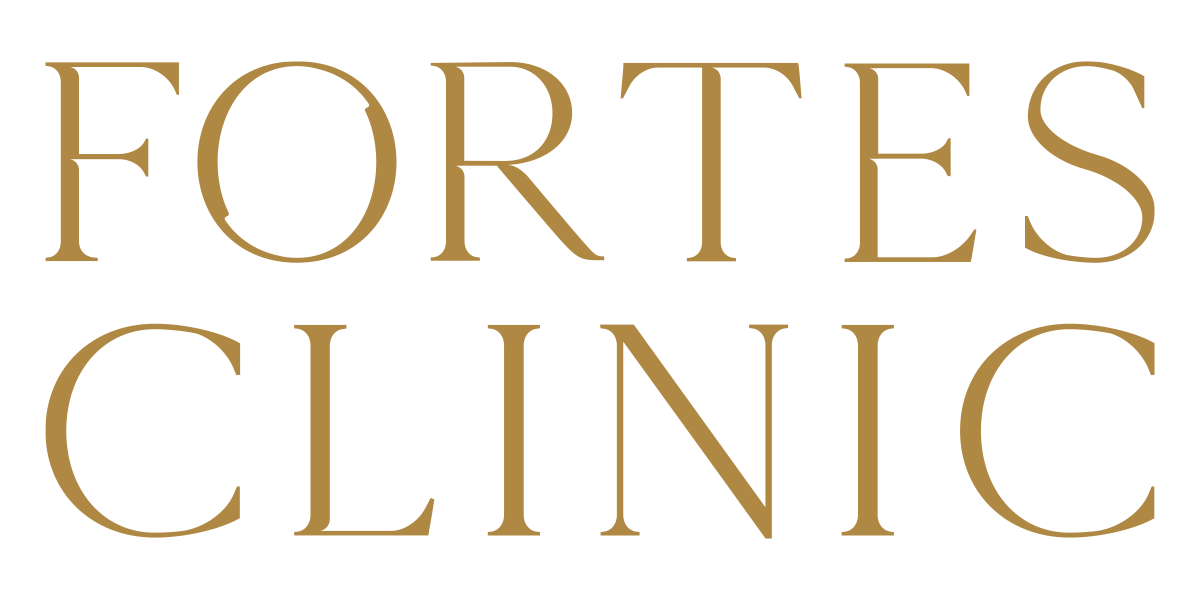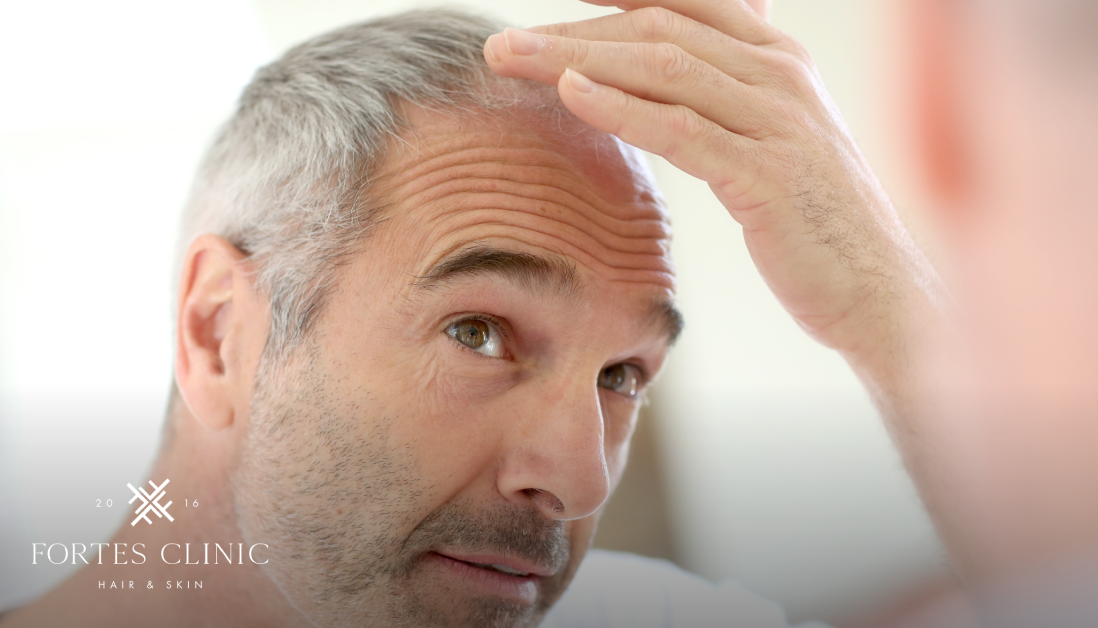Introduction
In the world of fitness and sports performance, creatine is a widely popular and highly debated supplement. It has gained immense popularity for its ability to enhance strength, power, and muscle mass. However, amidst the praise, concerns about the potential side effect of hair loss have emerged. Here, we will delve into the question that many athletes and fitness enthusiasts ask: Does creatine cause hair loss? Let’s explore the science behind this myth and separate fact from fiction.
What is Creatine?
Creatine is a naturally occurring compound found in small quantities in various foods like meat and fish. Within the body, creatine plays a vital role in energy production, particularly during high-intensity exercise. When ingested as a supplement, it increases the creatine levels in muscles, leading to improved performance.
What is Creatine & How Does It Work?
Creatine is a nitrogenous organic acid that helps supply energy to cells, particularly muscle cells, during intense physical activity.
How Does Creatine Work in the Body?
Creatine functions by regenerating adenosine triphosphate (ATP), the primary energy source for muscle contractions. By increasing the availability of ATP, creatine provides a quick and readily accessible energy source, enhancing performance during activities such as weightlifting, sprinting, and high-intensity interval training.
Forms and Dosage of Creatine Supplements
Creatine is commonly available in powder or pill form, with creatine monohydrate being the most widely used and researched form. The recommended dosage for creatine supplementation typically involves a loading phase of around 20 grams per day for five to seven days, followed by a maintenance phase of 3-5 grams per day.
Benefits of Creatine for Athletic Performance
Creatine has been extensively studied and proven to offer several benefits for athletic performance. It improves strength, power output, and muscle mass, allowing athletes to train at higher intensities and recover more efficiently between sessions. Additionally, creatine has been found to enhance anaerobic performance, especially during short-duration, high-intensity activities.
Hair Loss Basics
Before exploring the potential link between creatine and hair loss, it is essential to understand the basics of hair loss itself. Hair loss, also known as alopecia, can be a distressing condition affecting both men and women.
Understanding Hair Loss
Hair loss occurs when hair follicles shrink and produce thinner, weaker strands of hair over time. This can result in gradual hair thinning or complete baldness in some cases. The most common cause of hair loss is androgenetic alopecia, often referred to as male pattern baldness. Other factors contributing to hair loss include hormonal imbalances, nutritional deficiencies, stress, certain medical conditions, and medication side effects.
Common Causes of Hair Loss
Hair loss can have various underlying causes, including genetics, hormonal imbalances, and certain medical conditions. It is crucial to differentiate between natural hair loss patterns and those caused by external factors.
Male Pattern Baldness vs. Other Types of Hair Loss
Male pattern baldness, characterised by a receding hairline and thinning crown, is the most prevalent form of hair loss in men. However, women can also experience hair thinning and loss, often attributed to factors such as hormonal changes, childbirth, or medical conditions like polycystic ovary syndrome (PCOS).
The Connection Between Creatine and Hair Loss
Exploring the Myth: Does Creatine Cause Hair Loss?
Amidst the anecdotal claims and concerns surrounding creatine use, many individuals believe that it can accelerate hair loss. However, scientific evidence supporting this claim is limited and inconclusive. Let’s delve into the science behind the myth and separate fact from speculation.
The Science Behind the Claim
The hypothesis linking creatine supplementation and hair loss suggests that increased levels of dihydrotestosterone (DHT), a hormone associated with male pattern baldness, may occur as a result of creatine use. However, research has not consistently supported this theory, and further investigation is required.
Debunking the Myth: Lack of Concrete Evidence
While anecdotal reports and a few studies have proposed a possible association between creatine and hair loss, the overall evidence is far from conclusive. Several factors, such as individual variations, genetics, and other lifestyle factors, can contribute to hair loss. Therefore, it is crucial to consider a broader perspective when evaluating the potential impact of creatine on hair health.
Considering Individual Variations
Each individual’s genetic makeup and predisposition to hair loss play a significant role in determining whether creatine use may have any impact. While some individuals may experience no change in their hair health while using creatine, others may notice slight changes due to a combination of factors.
Factors That Influence Hair Loss
To better understand the potential impact of creatine on hair loss, it is important to explore the factors that contribute to hair loss in general. Various genetic, hormonal, nutritional, and environmental factors can influence hair health.
Contributing Factors to Hair Loss
Hair loss is a complex issue influenced by multiple factors. Let’s explore some of the key contributors to hair loss.
Genetics and Hereditary Factors
Genetics play a significant role in determining an individual’s susceptibility to hair loss. If you have a family history of hair loss, particularly male pattern baldness, there is a higher likelihood that you may experience similar hair thinning or loss.
Hormonal Influences
Hormonal imbalances, particularly the presence of DHT, can contribute to hair loss. However, the relationship between creatine use and hormonal changes is still not well-established.
Nutritional Deficiencies
Poor nutrition, including inadequate protein intake and deficiencies in essential vitamins and minerals, can negatively impact hair health. Ensuring a balanced diet and addressing any nutritional deficiencies is vital for maintaining healthy hair.
Other Lifestyle and Environmental Factors
Other factors such as excessive stress, smoking, certain medications, and exposure to environmental pollutants can also contribute to hair loss. Managing these factors is essential for maintaining overall hair health.
Understanding Creatine’s Impact on Hair Loss
Evaluating the Studies
Numerous studies have attempted to explore the potential relationship between creatine supplementation and hair loss. However, the findings have been inconsistent, and the limitations of these studies need to be considered.
Existing Research on Creatine and Hair Loss
Some studies have suggested a possible link between creatine use and increased DHT levels. However, other studies have failed to find any significant association between creatine supplementation and hair loss. The conflicting results indicate the need for further research.
Findings and Limitations of Studies
While some studies have reported elevated DHT levels with creatine use, the changes observed were within the normal physiological range. Additionally, most of the studies conducted so far have been small in scale and lack long-term follow-up, limiting their overall reliability.
Expert Opinions and Professional Athletes’ Experiences
Many experts, including sports nutritionists and hair loss specialists, believe that the potential impact of creatine on hair loss is minimal. Numerous professional athletes have used creatine without experiencing any adverse effects on their hair health. It is essential to consider the collective experiences and expert opinions when evaluating the risks associated with creatine use.
Managing Hair Health While Using Creatine
Tips for Maintaining Hair Health
If you are concerned about hair loss while using creatine or want to ensure optimal hair health, there are various measures you can take. Let’s explore some practical tips to maintain healthy hair while using creatine.
Balanced Nutrition and Adequate Hydration
Maintaining a balanced diet rich in essential nutrients, including vitamins, minerals, and proteins, is crucial for promoting healthy hair growth. Hydration is equally important, as it helps maintain scalp health.
Proper Hair Care Routine
Adopting a proper hair care routine can significantly contribute to maintaining healthy hair. This includes regular washing, conditioning, and avoiding excessive heat styling or harsh chemical treatments.
Regular Scalp Massage and Blood Circulation
Massaging the scalp regularly can improve blood circulation to the hair follicles, promoting hair growth and overall hair health. It is a simple technique that can be incorporated into your daily routine.
Supplements and Alternative Options for Hair Support
Certain supplements, such as biotin or other hair support formulas, may be beneficial in maintaining healthy hair. Consult with a healthcare professional or a hair specialist to determine the most suitable options for you.
Summary
Final Verdict: Creatine and Hair Loss
Based on the current evidence, the myth linking creatine supplementation to hair loss appears to lack substantial scientific support. While individual experiences may vary, the majority of research and expert opinions suggest that creatine use alone is unlikely to cause significant hair loss.
Balancing the Benefits and Risks of Creatine Use
When considering the use of creatine as a supplement, it is essential to weigh the potential benefits for athletic performance against any perceived risks. The decision should be based on individual goals, overall health, and consultation with healthcare professionals.
Making Informed Decisions Based on Individual Needs
Every individual is unique, and the impact of creatine on hair health may differ. It is crucial to consider personal factors such as genetics, overall health, and lifestyle choices when making decisions about creatine supplementation.
The myth associating creatine with hair loss remains largely unsupported by scientific evidence. While some anecdotal reports and limited studies have raised concerns, the overall consensus suggests that creatine use alone is unlikely to cause significant hair loss. By maintaining a healthy lifestyle, balanced nutrition, and adopting proper hair care practices, individuals can minimize any potential impact on hair health.
As always, it is advisable to consult with healthcare professionals or specialists to make informed decisions that align with your individual needs.



